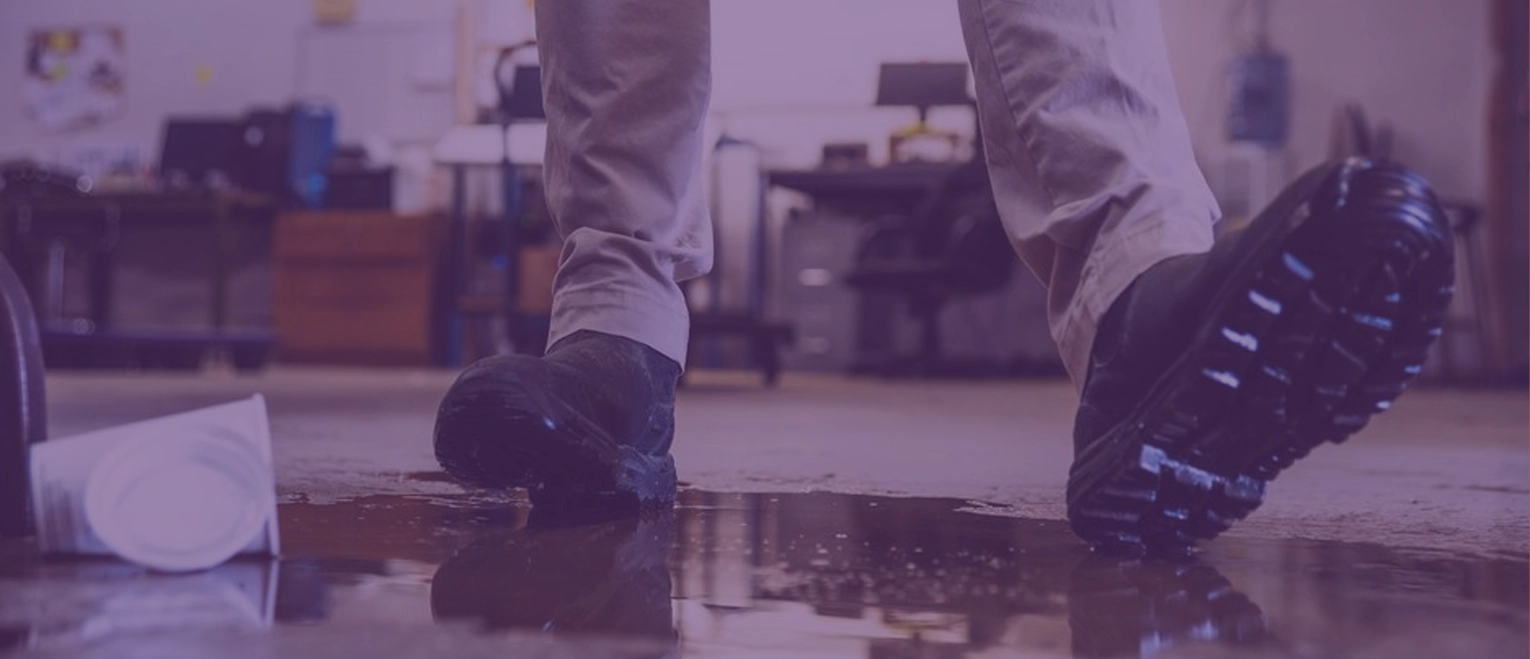Yes, you can you sue if an injury happens on private property, Toronto personal injury lawyer explains
The Toronto personal injury lawyers at Verkhovets Law know, whether we like it or not, winter is about to envelop us in its cold embrace. Soon, we’ll find ourselves gathering in each other’s homes and comfy cabins in cottage country. Friends and family will seek warmth and comfort by the crackling fireplace, take in the white-blanketed scenery from the snowy porch, delight in the inviting glow of holiday feasts, and share stories while in each other’s cozy living rooms.
But what if something goes wrong: can you sue if an injury happens on someone’s private property? Yes! Our Toronto personal injury lawyer at Verkhovets Law warns that not every get-together is a Hallmark movie. Private property can pose risks of injury, and the possibility of a personal injury lawsuit.
Our Toronto personal injury lawyer, Mariya Verkhovets, says legal rights on private property go both ways: you can face consequences if someone is injured at your home, cottage, cabin, or other private property, and if you’re injured there, you can pursue compensation.
Ms. Verkhovets explains that while you are suing the homeowner, who could be your close friend or even relative, you will actually receive compensation from their insurance company, when your personal injury lawsuit is successful. This is an important distinction. However, it is not uncommon that suing your friends and family will cause bad feelings, as their insurance premiums are likely to increase.
Bottom line: in Ontario under the Occupiers’ Liability Act (OLA), whether it’s owned or rented, a property must be kept reasonably safe, or the owners/occupiers face the cold reality of a personal injury lawsuit, say our Toronto personal injury lawyers.
7 important definitions of the Occupiers’ Liability Act
The Toronto personal injury lawyers at Verkhovets Law explain the Occupiers’ Liability Act governs the legal responsibilities and liabilities of property owners/occupiers if an injury happens on private property.
1. “Occupier” – A person who has physical possession of a premises or has responsibility for and control over its condition, activities, and who enters.
2. Duty of care – What property owners/occupiers owe to ensure the safety of individuals who lawfully enter or use their property, say our Toronto personal injury lawyers.
3. Reasonable safety measures – While it doesn’t have to be perfect, owners/occupiers are required to take reasonable measures to maintain their property in safe condition by addressing known hazards, addressing dangerous conditions and defects.
4. Liability – If a person is injured on the property due to a breach of the duty of care (e.g., slip and fall accidents, injuries caused by property hazards), the owner/occupier may be responsible for injuries and damages. Premises liability depends on the circumstances and if they failed to meet the legal standard.
5. Exceptions/defences – Our Toronto personal injury lawyer notes owners/occupiers may not be held liable in certain circumstances like if the injured person was trespassing and their presence was not authorized. So, burglars and other criminals cannot sue you for compensation if they become injured on your property.
6. Shared responsibility – Depending on the factors of an incident, an injured party and the property owner/occupier may be jointly and severally liable (shared).
7. Notification and warning – Owners/occupiers have a duty to provide warnings or notifications about known hazards, explains our Toronto personal injury lawyer.
9 types of hazards that could launch a lawsuit
The Toronto personal injury lawyers at Verkhovets Law know there are a variety of accidents that might occur during the winter season in the context of private property. Here are some key areas of concern to fix – before it’s too late:
1. Slip and fall on icy walkways and exterior stairs: A guest might slip and injure themselves on icy walkways or stairs that haven’t been properly cleared or treated, leading to injuries like broken bones or sprains, notes our Toronto personal injury lawyer Mariya Verkhovets.
2. Tripping on unseen hazards: Inadequate lighting, hidden obstacles under snow, or poorly maintained pathways can lead to guests tripping.
3. Accidents with fireplaces or heaters: Indoor gatherings often involve fireplaces or space heaters. Accidents like burns or carbon monoxide poisoning can happen if these devices are not used or maintained correctly.
4. Falling snow or ice: Snow and ice accumulation on roofs or trees can pose a hazard if they suddenly fall on guests or property, potentially causing injuries, say our Toronto personal injury lawyers.
5. Inadequate maintenance: Property owners may neglect proper maintenance, leading to incidents such as collapsing roofs or malfunctioning heating systems.
6. Food-related incidents: At indoor holiday gatherings, food poisoning or allergic reactions due to improper food handling or labeling can occur, warn the Toronto personal injury lawyers at Verkhovets Law.
7. Unsafe decorations: Inadequately secured holiday decorations or lighting can result in electrical hazards or falling objects that may cause injuries.
8. Faulty handrails: Our Toronto personal injury lawyers know that broken or wobbly handrails on staircases can cause guests to lose their balance and fall.
9. Unattended children: Guests with young children might not be aware of potential hazards, leading to accidents like children slipping on icy surfaces.
Email or call our Toronto personal injury lawyers
When property owners/occupiers fail to maintain a safe environment, and you’re injured, you can seek compensation. Or if you’re being sued for an injury on your private property, there is recourse. A Toronto personal injury lawyer at Verkhovets Law will evaluate if the duty of care was breached and fight for your rights. Call or email today.





